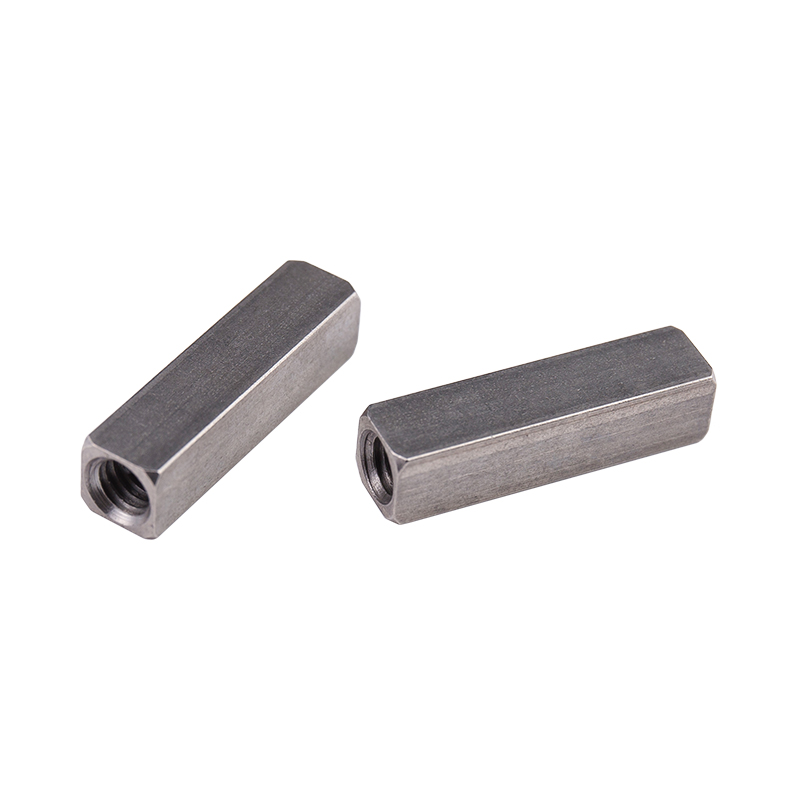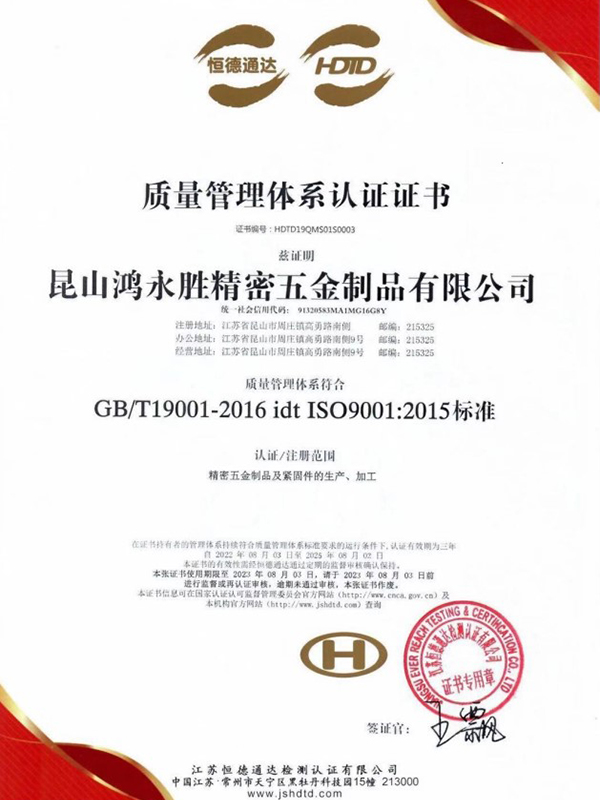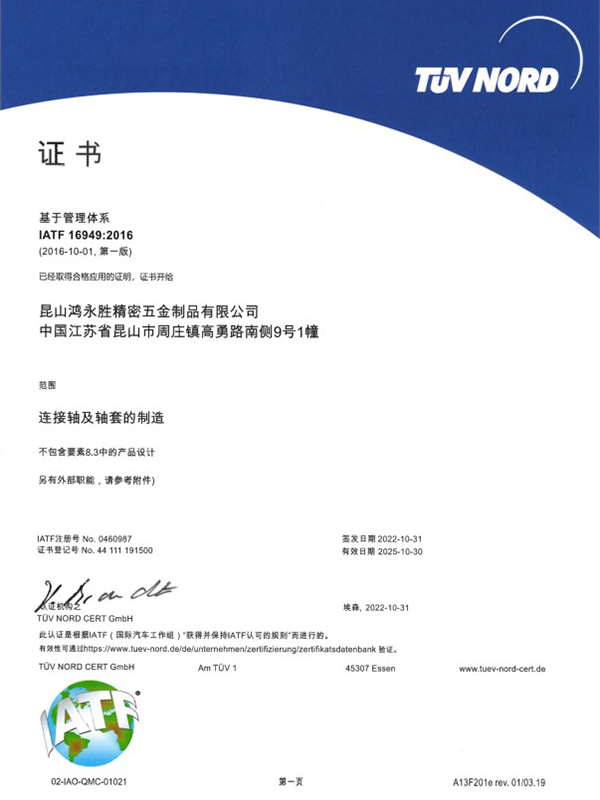Definition and Basic Concept of Hexagonal Rivet Nuts Hexagonal rivet nuts are internally threaded fasteners designed to create strong, load-bearing threads in thin or hollow materials where convention...
READ MOREThe company has obtained two quality system management certificates of ISO9001:2015 and IATF16949:2016.
At present, the company has been for Japan, Sweden, the United States, Singapore, Malaysia, Hong Kong and the Pearl River Delta and many other customers to provide services, now the main customers are: Japan Sharp (SHARP), Japan SMC, Japan Panasonic (Panasonic), the Swedish automobile VOVOL, etc., all the fixed assets investment of more than 30 million dollars, welcome friends from all walks of life to the factory to visit, study, consulting and come! We welcome friends from all walks of life to visit our factory, investigate, consult and come to us for sample processing.
We are looking forward to establishing a good business partnership with you with mutual trust and reciprocity!
-
-
Understanding Sealing Requirements in Hydraulic and Pneumatic Systems Hydraulic and pneumatic connections operate under internal pressure, media flow, and frequent pressure fluctuations. In these syst...
READ MORE -
Introduction to Screw Hardware Screw hardware is a fundamental component in construction, manufacturing, and DIY projects. It plays a critical role in joining materials securely, providing structural ...
READ MORE -
Introduction to Round Head Cross Bolts Round head cross bolts are a type of fastener widely used in construction, machinery, and industrial applications. They feature a rounded head with a cross slot ...
READ MORE
What is the quality control process for automotive square nut welding studs?
The quality control process for automotive square nut weld nails is a multi-step, comprehensive process aimed at ensuring that the quality of the studs meets the standards and requirements of the automotive industry. The following is a typical quality control process for automotive square nut weld nails:
Material inspection: check whether the raw materials of the welding studs meet the specified chemical composition and physical performance requirements. Conduct necessary chemical analysis, mechanical property testing, and microscopic observation of the raw materials to ensure their quality.
Dimensional inspection: Use precision measuring tools to measure the key dimensions of the welding studs, such as thread diameter, pitch, height, etc. Ensure that the dimensions of the welding studs are within the specified tolerance range to ensure compatibility and interchangeability with other fasteners.
Appearance inspection: check the surface quality of the welding studs, such as whether there are defects such as cracks, burrs, and rust. Ensure that the appearance of the welding studs is clean, smooth, and free of obvious defects.
Welding quality inspection: Conduct a detailed inspection of the welding part of the welding stud, including the integrity, uniformity, and continuity of the weld. Use nondestructive testing techniques such as X-rays and ultrasonic waves to further inspect the weld to detect potential defects.
Strength test: Conduct mechanical property tests such as tensile and compressive tests on the welding studs to evaluate their load-bearing capacity. Ensure that the strength of the welding studs meets design requirements and relevant standards.
Corrosion resistance test: Conduct corrosion resistance tests on welding studs in simulated harsh environments, such as salt spray tests and damp heat tests. Evaluate the corrosion resistance of welding studs in different environments to ensure their durability in practical use.
Traceability and Identification: Each welding stud is uniquely identified to trace its origin and production process. Ensure the quality information of each welding stud is traceable, facilitating troubleshooting and handling in case of issues.
Quality control records and reports: Record the quality control process and results of each batch of welding studs, and form detailed quality control records and reports. Regularly summarize and analyze quality control data to identify potential problems and make improvements in a timely manner.
Continuous improvement: Based on quality control data and customer feedback, we continuously improve the production process and quality control process of welding studs. We adopt new technologies and processes to improve the quality and performance of welding studs to meet the ever-changing market demands.
Through strict quality control process, the quality of the welding studs of the automotive square nut weld nail can be ensured to be stable and reliable, providing a strong guarantee for the safety and development of the automobile industry.



 русский
русский Español
Español



